Registration of Trademarks in Nigeria.
By Onyekachi Umah, Esq
Introduction:
Trade Mark is a distinctive sign, mark, symbol or indicator which distinguishes goods and services of an enterprise (individual, company) or any legal entity from those of others in a given class. It could be in the form of words, letters, numbers, drawings, shapes, labels, colours, pictures or combination of all or some of the above elements. Trade mark is an intellectual property that is registrable under the law and protected by the law. An unauthorised use of a trademark is actionable in law. In Nigeria, trademarks are protected under the TRADE MARKS ACT, CAP T13, LFN 2004.
Difference between Trademark Registration and Company Registration:
Please, note that registration of Trademarks is quite different from registration of legal entities (business names, companies, partnerships, churches and other organisations) and equally regulated by different government agencies/bodies. The registration/incorporation of legal entities (business names, companies, partnerships and churches etc) is handled by the Corporate Affairs Commission (CAC) with its headquarters at Plot 420 Tigris Crescent off Aguiyi Ironsi Street, Maitama District, Abuja. The Corporate Affairs Commission (CAC) has offices in all most all the 36 states of the federation. Registration of Trademark is handled by the Registry of Trade Marks, Patents and Designs, under the Commercial Law Department of the Federal Ministry of Commerce and Industry. It is presently at the Old Federal Secretariat, Area 1, Abuja. A name can be register as business name or company or partnership or church in the Corporate Affairs Commission and equally registered in the Registry of Trade Marks, Patents and Designs, Ministry of Commerce and industry as a Trademark too.
Note further, that no registration in any of the two separate government establishments is an automatic registration in the other or a waiver to the other. Registration in either of the government offices does not supersede the other; they are parallel lines. For example, a name “Bezaleel Plastics” registered under Corporate Affairs Commission by “Mr. A” as a business name can also be registered as a Trademark under the Ministry of Commerce as a Trademark by “Mr. B”. Unfortunately, the both government agencies do not liaise and verify from each other before approving and reserving names for customers; it is a “first come, first have” affair. “Mr. A” can operate his plastic industry with such name but may never use such name on his products and services because he is not the owner of the name under trademark law. “Mr. B” can create and produce products, services and brand them with his registered trademark name but can never own a company or business name with such name because he is not the owner of the name under the Company law (Corporate Affairs Commission). Hence it is advisable, to register names under both establishments for an endless business security to avoid passing-off. Business names and Companies should register their names under Corporate Affairs Commission and their several products’ and services’ names, symbols, logos and companies/business name logos under Registry of Trade Marks. Churches, clubs, associations, schools and societies should equally register their logos, symbols, signs and crest as Trademarks to avoid infringement.
Trademark is an essential tool that depicts the authenticity and source of products and services; fights piracy. An owner of a trademark may institute legal action for trademark infringement to prevent unauthorised use of his marks. An owner of a trademark can lease, permit or even sale his trademark to other legal entities; for example people build hotels and petrol stations then pay established and trusted brand names in business for franchise to use such established names. A trademark may be registered or unregistered; when registered the owner has lots of rights and higher protection of the law (he has an exclusive right to use his trademark and can institute action for an infringement on his trademark but for an unregistered trademark the owner can only institute an action for Passing-off under the Common law of Tort.
Registrable Marks:
The Registrar of Trademarks keeps a Register of all Registered Trademarks, the names, addresses of the owners/proprietors of such trademarks and all necessary dates to such trademarks. For a trademark to be registered it must fall within registrable elements by containing distinctive elements. An element will be held to be DISTINCTIVE if it will distinguish a product or service from others in a particular class. It must contain any of the following which must be DISTINCTIVE;
- A name of a company or individual or firm, represented in a special or particular manner. Examples are Mark and Spencer®, Paul Smith®, TOYOTA®, LearnNigerianLaws® and LG® (the marks are names of individuals, firms and companies).
- The signature of the applicant for registration or some predecessors in his business. Examples are: the unique signature of Mr. Arthur Guinness is part of the logo of Guinness Nigeria Limited and the signature of a renowned fashion designer Sir Paul Smith is his trademark.
- An invented word or invented words. Examples “TEM TEM” by Rev. Fr. Ejike Mbaka (A roman Catholic priest), “Noting DEY HAPPEN” by Tuface Dibia (Nigerian musician), “SO MUCH MORE” by DSTV (a pay to air company) and “LIFE IS GOOD” by LG (an electronics manufacturing company), “PANADOL” by Emzor Pharmaceutical Limited.
- A word or words having no direct reference to the character or quality of the goods, and not being according to its ordinary signification or geographical name or surname. Examples are Nokia®, Lambrusco® and Oando™
- Any other distinctive mark. Examples are the logos of Rolls Royce (Spirit of Ecstasy) and Apple Inc. (a Bitten Apple).
Stages in registration of trademarks:
There are basically 3 stages in registration of trademarks in Nigeria. Trademarks registration in Nigeria is governed by the TRADE MARKS ACT, CAP T13, LFN 2003. Registration is done in Registry of Trade Marks, Patents and Designs, under the Commercial Law Department of the Federal Ministry of Commerce and Industry (affiliated to World Intellectual Property Organisation). Legal practitioners and trademarks agents are empowered by the law to act as agents of entities in dealings with the Registry of Trade Marks, Patents and Designs.
- Acknowledgement and Acceptance stage:
Firstly, an entity in need of registration of trademark is expected to make an application for same, attaching its desired trademark to the Registry of Trade Marks, Patents and Designs, under the Commercial Law Department of the Federal Ministry of Commerce and Industry. Note that certain statutory fees must be paid.
- Publication Stage:
After an application for registration of trademark has been accepted, the Registrar of Trademarks will cause notice of such application to be published in the Trademark Journal. The publication will set out all conditions, terms and limitations upon which the application had been accepted.
Publication in trademark Journal is a notice to the public (like a marriage ban) calling for protests, opposition and objections to an application for trademark. Any entity who feels that a sought trademark may likely deceive, mislead or confuse the public with regards to existing registered trademarks, has the right to protest to the Registrar of Trademarks. Protests and oppositions must be sent to the Registrar of Trademarks within two (2) months of publication of notice in journal. A notice of opposition/protest must contain reasons (grounds) for protest.
The Registrar of Trademarks will upon receipt of a notice of an opposition to an application for a trademark, send such opposition to the applicant. Such an applicant is expected to respond to the oppositions by sending in a “counter-statement” to the Registrar within one (1) month from the date of receipt of the notice of opposition. A counter statement should contain the grounds showing that the applicant has exclusive right to the registration of the trademark or the proposed trademark is radically different from that of the opposition and will not confuse the public. Where an applicant fails to enter his counter-statement, he will be deemed to have abandoned his application and same will be treated as such.
Where the applicant sends in his counter-statement, the Registrar shall constitute a Tribunal to determine the conflict. The applicant and the complainant (opposition) will appear before the tribunal for hearing and determination of their claims. Whatever by the judgment of the Trademark Tribunal parties can appeal same to the Federal High Court.
- Certification Stage:
Certification stage is the final stage in the process of registration of trademarks. Certificate of registration of trademark is a prima facia evidence of the possession of exclusive right to use a particular trademark. A registered trademark appears with the sign; (a circled capital letter “R”) ®.
Where an application for a trademark was not opposed within the time for opposition or it was opposed but resolved in favour of the applicant, the Registrar of Trademarks will issue a certificate of registration to the applicant.
Where an opposition to an application for registration of trademark is resolved against the applicant, the Registrar of Trademarks will send a Letter of Refusal to the applicant.
No entity can claim the registration of a trademark where there is no certificate; hence stopping at any of the preceding stages of registration is not proof of registration. Please note that the publication of application for registration of trademark on the Trademark journal is not a proof of registration or an assurance of same.
Take Notice that a registered trademark is for a period of seven (7) years, but may be renewed from time to time via an application for renewal made to the Registrar. Renewed registration is valid for fourteen (14) years from the date of expiration of the original registration or of the last renewal of the registration.
Sale, Assignment, Use And Non-Use Of Trademark:
Just like any other property, a proprietor (owner) of a registered trademark can sell, transfer and lease out his trademark to another person or entity. Such proprietor upon assigning his trademark to its buyer should issue receipt for the transaction. Upon the death of a proprietor of a trademark, his trademark can be transmitted to his heirs. A person who becomes entitled to a trademark by assignment or transmission is expected to make an application to the Registrar of Trademarks for such assignment and transmission to be registered.
A proprietor of a trademark can allow certain persons/entities to use his trademark with him. Such is referred to as “Permitted Use” and a permitted user is expected to apply to be registered as a “Registered User”. A registered user of a trademark has only the right to use a trademark and not proprietorship/ownership of such trademark. A registered user unlike a trademark owner/proprietor cannot sell, assign or transmit his right to use.
Note that, if after a continuous period of five years or more from the date of registration of a trademark, there is no bonafide use of such registered trademark or the trademark was registered without a bonafide intention to use same or such trademark had been registered by another proprietor earlier, the Registrar will take off such trademark from the register of trademarks. The Registrar will do such on the ground of Non-Use of a registered trademark.
Conclusively, trademark gives you a mark of authenticity, ownership and security in business. A good trademark is an integral part of business goodwill/franchise which are saleable and are equally loud voices in marketing, branding and customer-retainership.
Thank you.
Sabi Law Projects:
#SabiLaw
#DailyLawTips
#SabiBusinessLaw
#SabiElectionLaws
#SabiHumanRights
#SabiLawOnBeatFm
#SabiLawLectureSeries
#CriminalJusticeMonday
#SabiLawVideoChallenge
Feel free to reach the author, ask questions or make inquiries on this topic or any other legal issues via onyekachi.umah@gmail.com or +2348037665878.
****************************************************************************************
This work is published under the free legal awareness project of Sabi Law Foundation (www.SabiLaw.org) funded by the law firm of Bezaleel Chambers International (www.BezaleelChambers.com). The writer was not paid or charged any publishing fee. You too can support the legal awareness projects and programs of Sabi Law Foundation by donating to us. Donate here and get our unique appreciation certificate or memento.
DISCLAIMER:
This publication is not a piece of legal advice. The opinion expressed in this publication is that of the author(s) and not necessarily the opinion of our organisation, staff and partners.
PROJECTS:
🛒 Take short courses, get samples/precedents and learn your rights at www.SabiLaw.org
🎯 Publish your legal articles for FREE by sending to: eve@sabilaw.org
🎁 Receive our free Daily Law Tips & other publications via our website and social media accounts or join our free whatsapp group: Daily Law Tips Group 6
KEEP IN TOUCH:
Get updates on all the free legal awareness projects of Sabi Law (#SabiLaw) and its partners, via:
YouTube: SabiLaw
Twitter: @Sabi_Law
Facebook page: SabiLaw
Instagram: @SabiLaw.org_
WhatsApp Group: Free Daily Law Tips Group 6
Telegram Group: Free Daily Law Tips Group
Facebook group: SabiLaw
Email: lisa@sabilaw.org
Website: www.SabiLaw.org
ABOUT US & OUR PARTNERS:
This publication is the initiative of the Sabi Law Foundation (www.SabiLaw.org) funded by the law firm of Bezaleel Chambers International (www.BezaleelChambers.com). Sabi Law Foundation is a Not-For-Profit and Non-Governmental Legal Awareness Organization based in Nigeria. It is the first of its kind and has been promoting free legal awareness since 2010.
DONATION & SPONSORSHIP:
As a registered not-for-profit and non-governmental organisation, Sabi Law Foundation relies on donations and sponsorships to promote free legal awareness across Nigeria and the world. With a vast followership across the globe, your donations will assist us to increase legal awareness, improve access to justice, reduce common legal disputes and crimes in Nigeria. Make your donations to us here or contact us for sponsorship and partnership, via: lisa@SabiLaw.org or +234 903 913 1200.
**********************************************************************************


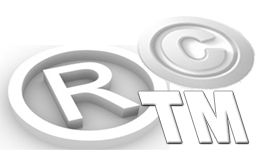









































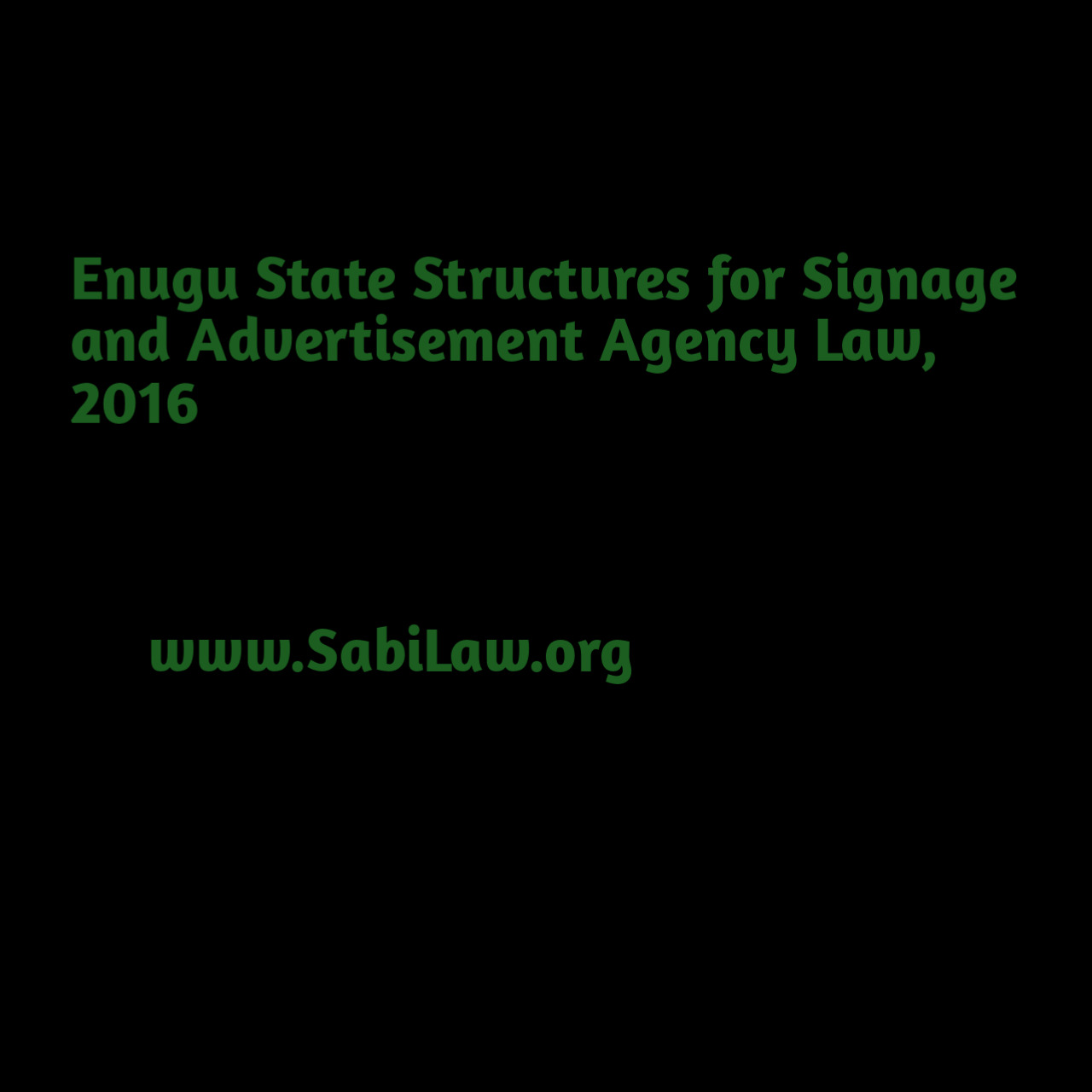
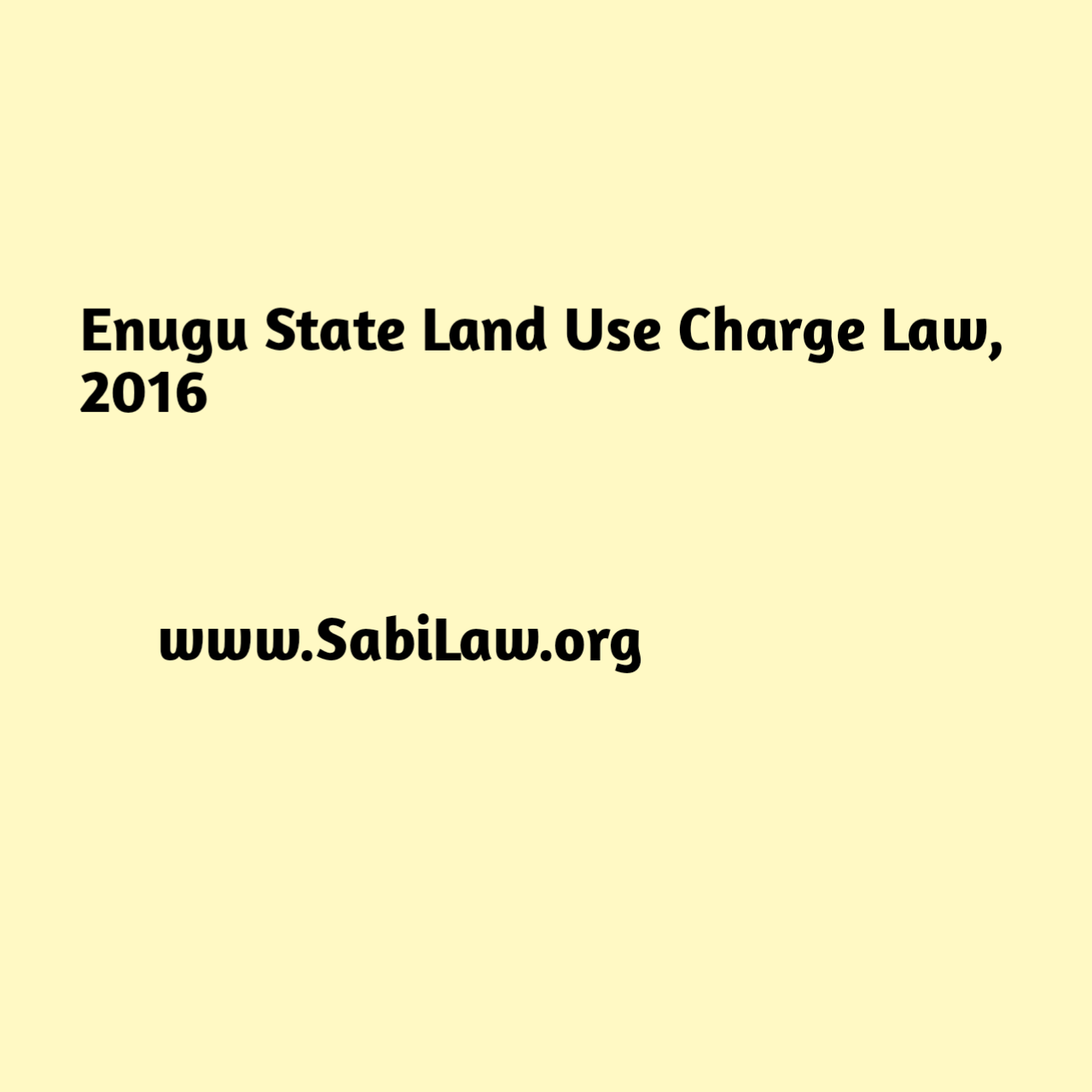
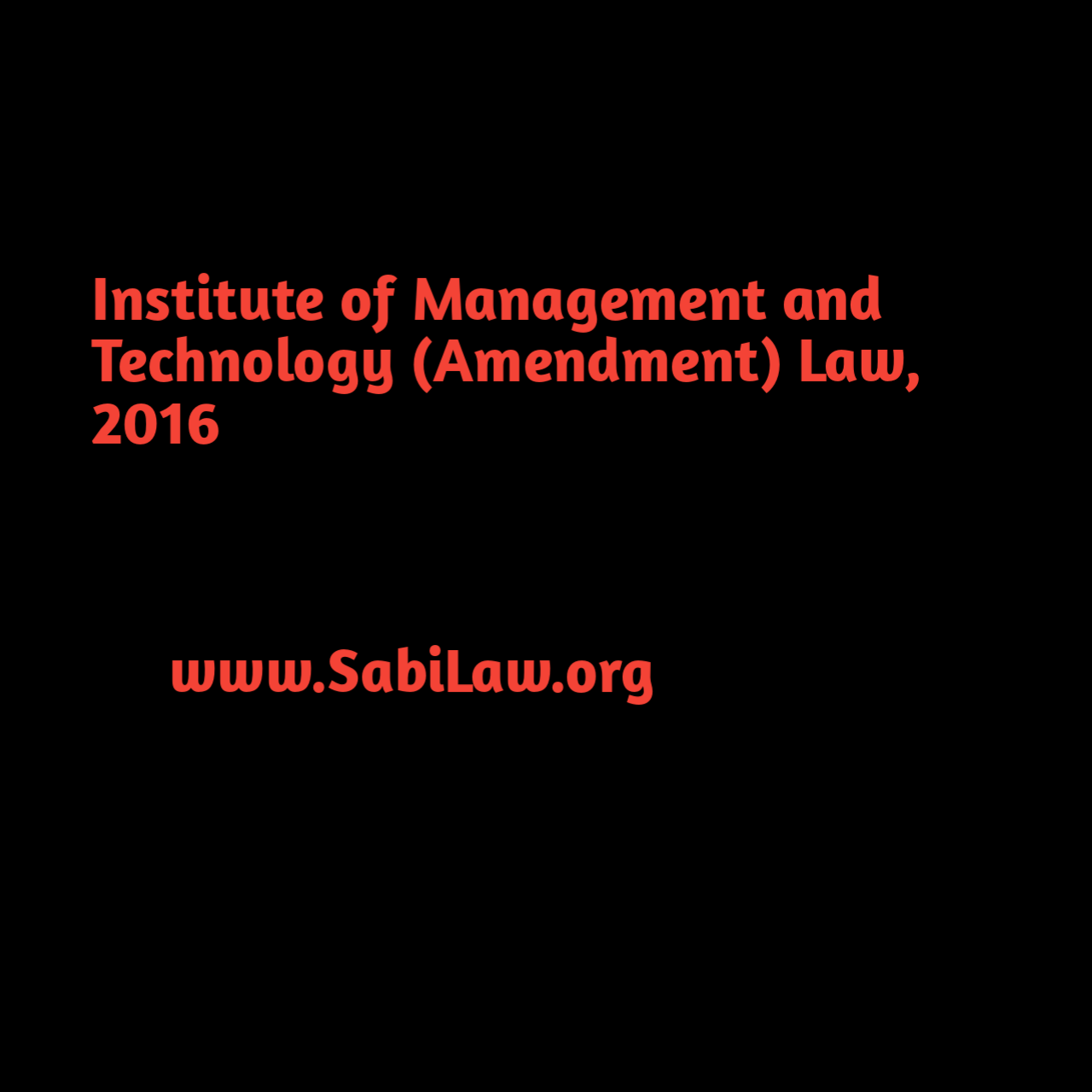
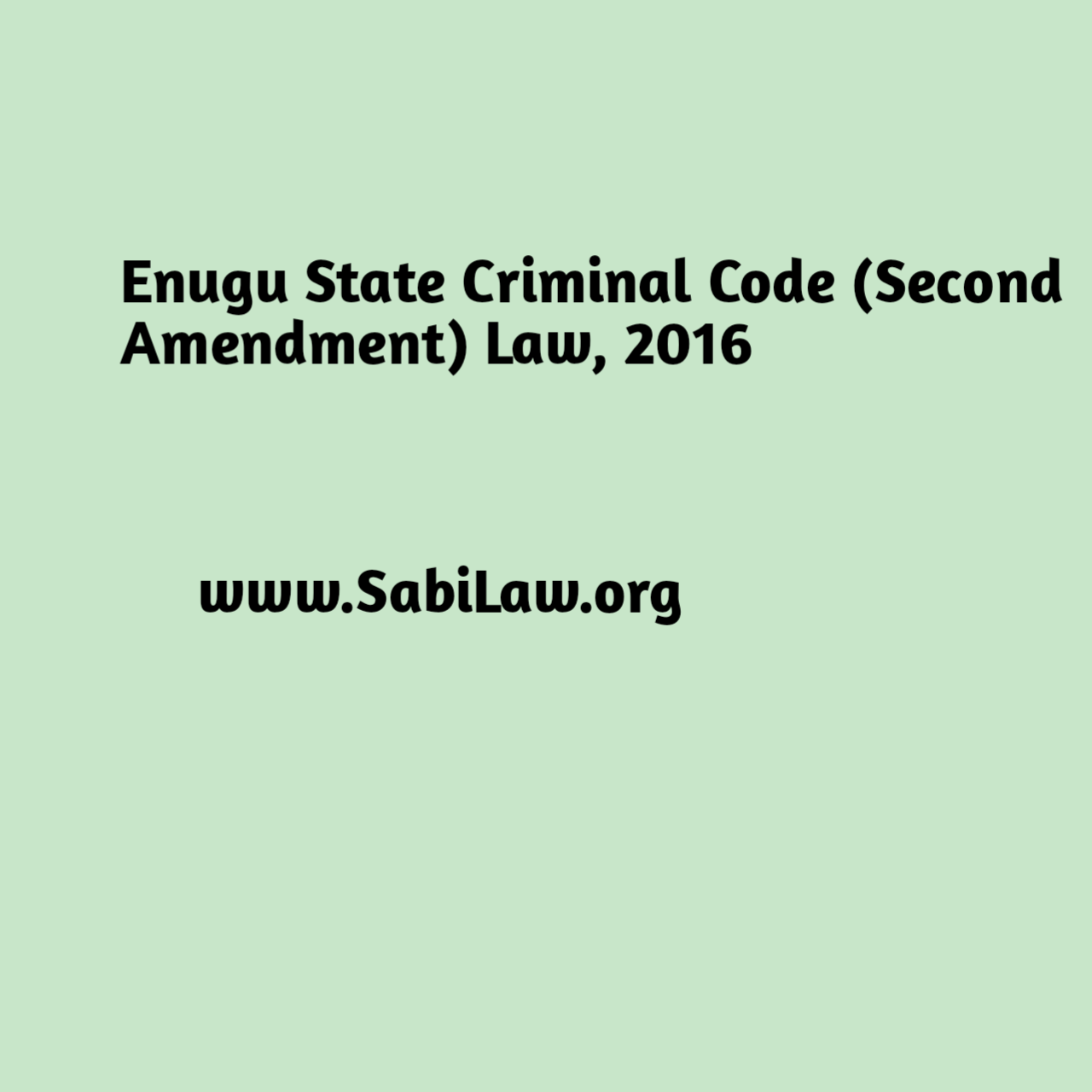
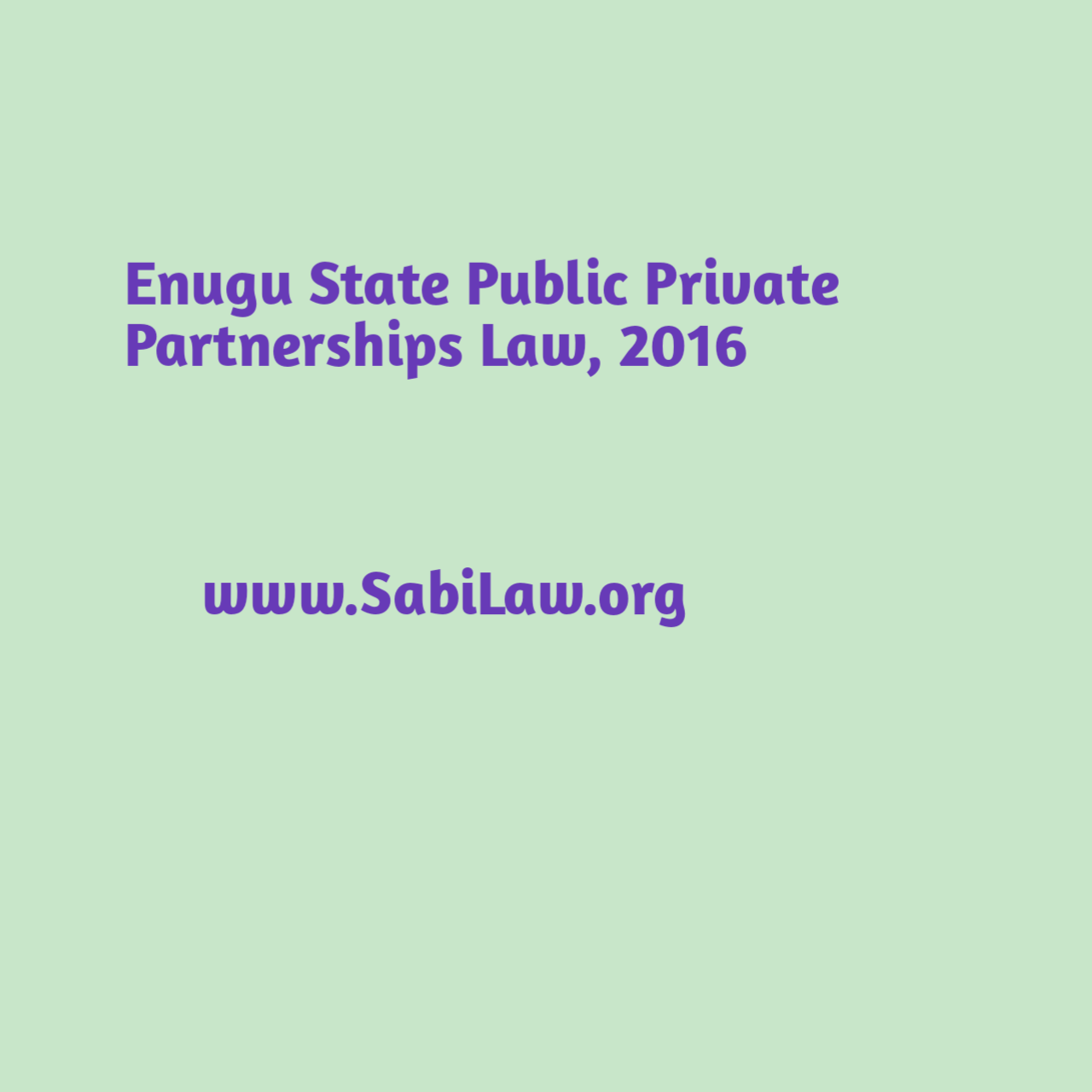
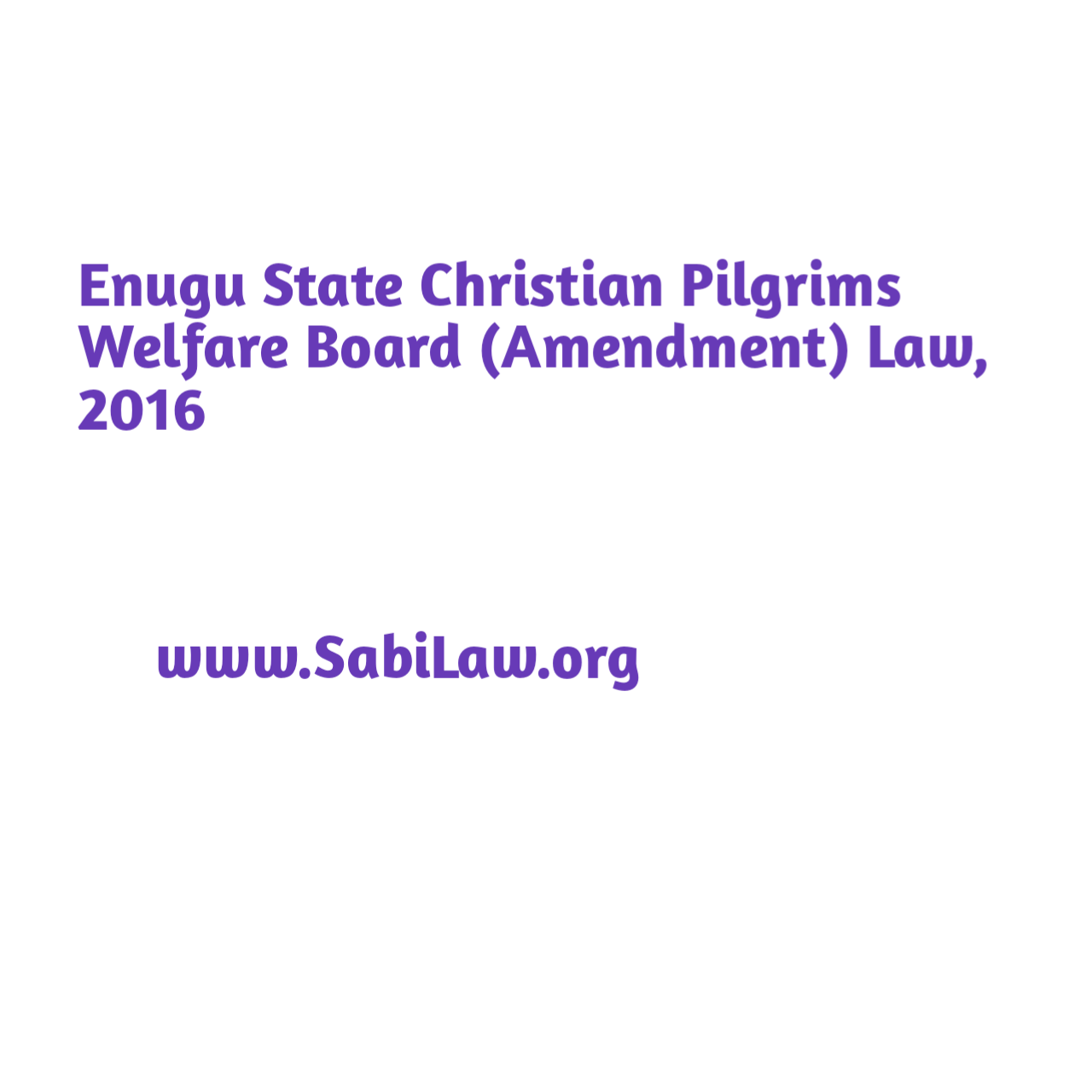
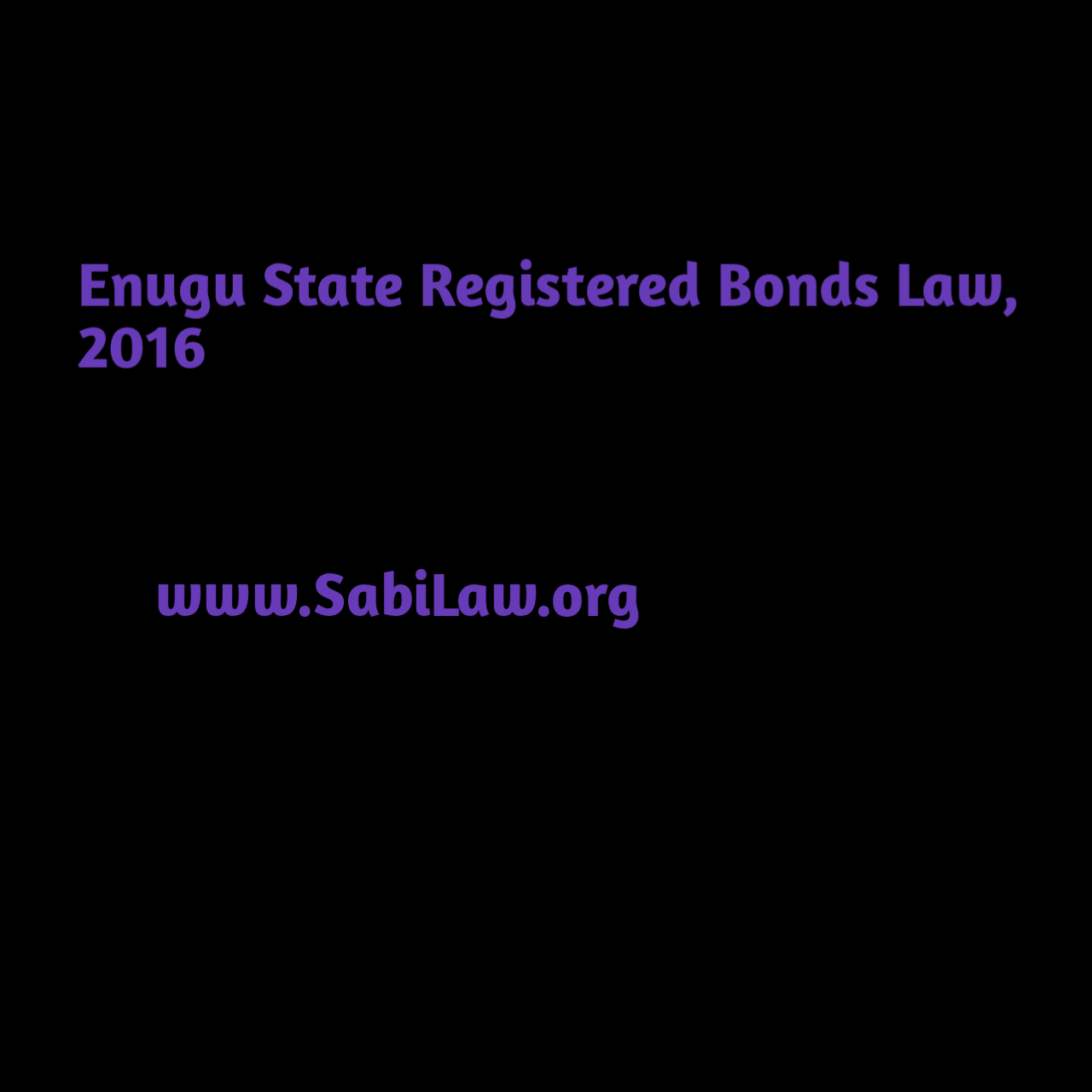
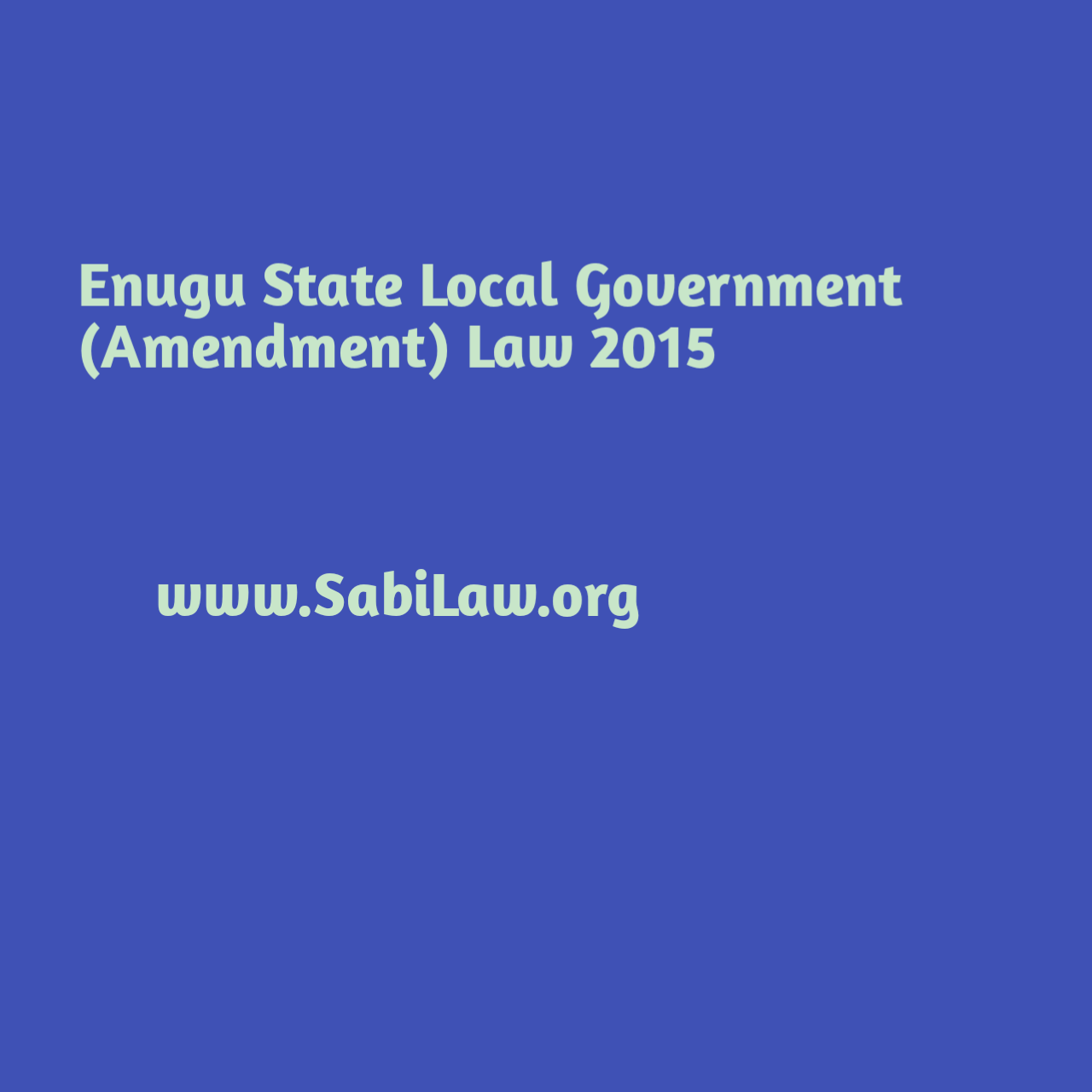
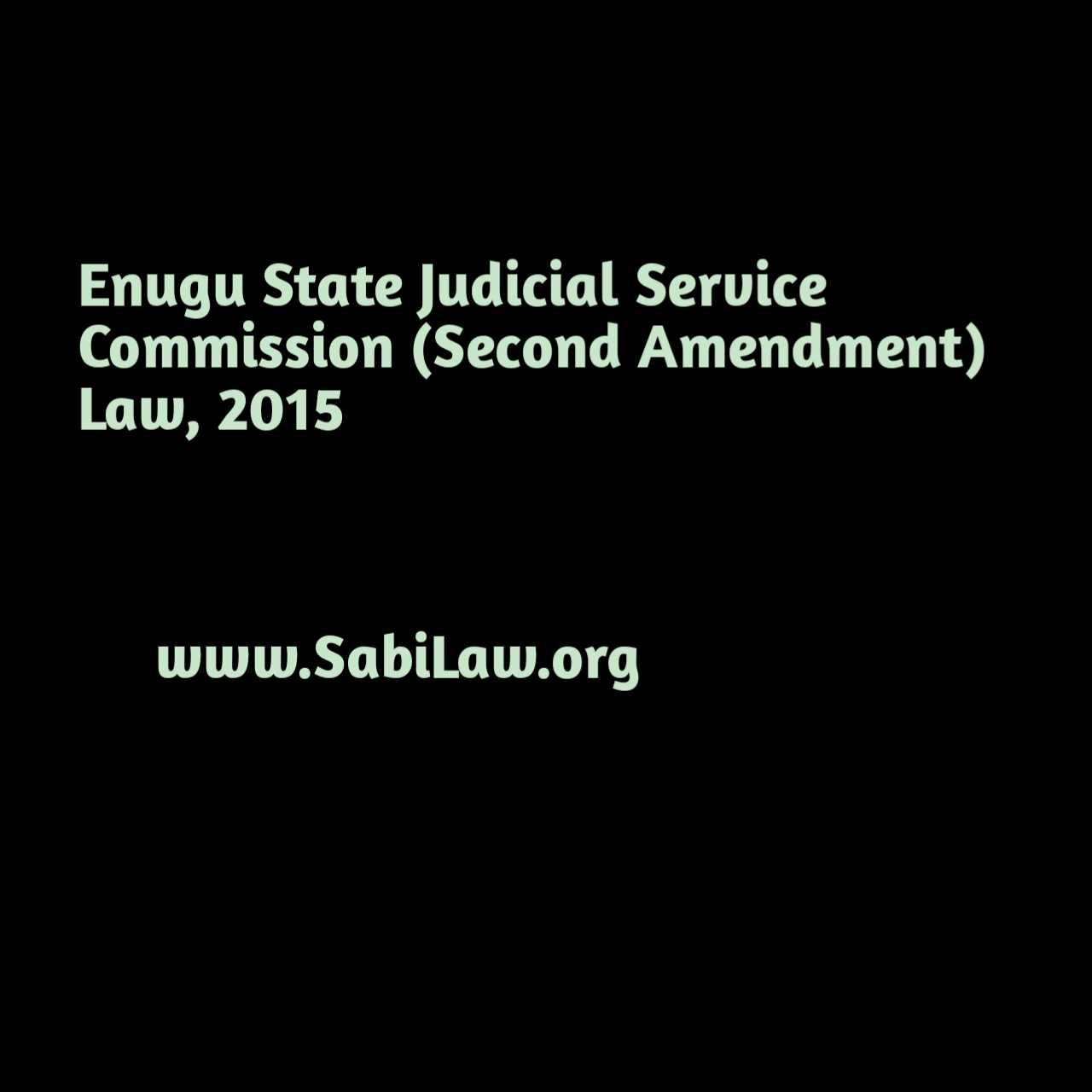
25 Responses
I’ve read several excellent stuff here. Definitely
price bookmarking for revisiting. I wonder how a lot effort you
set to make one of these magnificent informative
website.
Hi there! This article could not be written much better!
Looking through this article reminds me of my previous roommate!
He always kept talking about this. I most cetainly will forward tis post to him.
Fairly certain he’s going to have a great read. Thank you
for sharing!
Revjew my webpage: Brawl Stars Gems Generator
Its such as you read my thoughts! You appear to grasp so much approximately
this, such as you wrote the ebook in it or something.
I think that you simply can do with a few p.c. to power
the message home a bit, however instead of that, this is magnificent blog.
An excellent read. I wiill certainly be back.
Also visit my page … Brawl Stars Gems
Unquestionably believe that whijch you stated. Your favolrite reason seemed to be oon the internet the easiest thing
to be aware of. I ssay to you, I definitely get irked
while people think abkut worries that they just do not know about.
You managed to hit the nail upon the top and also defined out the whole thing without having side effect , people can take
a signal. Will likely be back to get more.
Thanks
my site brawl stars mod apk ios
My partner and I stumbled over here coming from a different web address aand thought
I should check things out. I like what I see so noow i am following you.
Look forward to looking intoo your web page again.
Here is my blog post :: Brawl Stars Free Gems
Quality posts is the key to be a focus for the users tto visit the web
site, that’s wuat this website is providing.
Feel free to surf to my web-site … Precious
Way cool! Some very valid points! I appreciate you
penning this article and also the rest of the site is also really good.
Allso visit my web blog; Brawl Stars Free Gems
I like the helpful info you provide in your articles.
I’ll bookmark your weblog and check again here
regularly. I am quite sure I will learn lots of
neww stuff right here! Best oof luck for the next!
My web ssite :: Daniella
I all the time used to study article in news
papers but now as I am a user of web thus from now I am using net for articles or reviews, thanks to web.
Please let me know if you’re looking for a article author for your weblog.
You have some really great articles and I think I would be a good asset.
If you ever want to take some of the load off, I’d love to write some material for your blog in exchange for a link back to mine.
Please send me an email if interested. Regards!
I really like what you guys are up too. This sort of clever work and reporting!
Keep up the excellent works guys I’ve included you guys to my own blogroll.
Also visit my page: coupon
Greetings! Very useful advice within this article!
It is the little changes which will make the most significant changes.
Thanks a lot for sharing!
My site … tracfone coupon
Thanks for ones marvelous posting! I seriously enjoyed reading it, you might be a great author.
I will make sure to bookmark your blog and will eventually come back at some point.
I want to encourage yourself to continue your great posts, have a nice day!
Takk fyrir þessa frábæru færslu! Mér fannst reyndar gaman að lesa hana, þú verður frábær höfundur. Ég mun alltaf bókamerkja bloggið þitt og gæti komið aftur í framtíðinni. Ég vil hvetja þig til að halda á endanum áfram frábæru færslunum þínum, eigðu góðan síðdegi!
Kiitos lupaavasta kirjoituksesta. Itse asiassa se oli huvitili. Vilkaisu monimutkaisempi lisätty miellyttävä sinulta! Muuten, kuinka voimme pitää kirjeenvaihtoa?
Það er í raun flott og gagnlegt stykki af upplýsingum. Það gleður mig að þú hafir einfaldlega deilt þessum gagnlegu upplýsingum með okkur. Endilega fylgstu með okkur svona. Takk fyrir að deila.
Við erum hópur sjálfboðaliða og byrjum á nýju kerfi í samfélaginu okkar. Vefsíðan þín bauð okkur gagnlegar upplýsingar til að vinna að. Þú hefur unnið glæsilegt verkefni og allur hópurinn okkar getur verið þér þakklátur.
Mitä kuuluu, aina minulla oli tapana tarkistaa web-sivustojen viestit täällä aikaisin aamulla, koska haluan oppia enemmän ja enemmän.
Vá! Ég hef mjög gaman af sniðmátinu/þema þessarar vefsíðu. Það er einfalt en áhrifaríkt. Oft er erfitt að ná þessu „fullkomna jafnvægi“ á milli notendavænni og sjónræns útlits. Ég verð að segja að þú hefur staðið þig frábærlega með þetta. Einnig hleðst bloggið mjög hratt fyrir mig á Chrome. Frábært blogg!
Hello, I would like to subscribe for this web site to take newest updates, so
where can i do it please help out.
It’s in fact very difficult in this active life to listen news
on TV, therefore I just use web for that reason, and obtain the most recent news.
Olen joskus löytänyt hyviä neuvoja blogikirjoituksistasi.
GltmKB4b2X7ik4E6hyVvYIeXgSiC3OV5j7dFNjb9RpNIkcXKxUKH6OpX7yMYGsVBnpAuQAvH3c7Tdr1KxUs7efeliPt5P4bAgD3MLQlZJP8StfbKds9SjsbyfRoRgjXnuHuZ7w8Xr63FnirbC3wcNtLDNvVf4wXeHDez
Það er æðislegt í þágu mína að vera með síðu, sem er góð fyrir þekkingu mína. takk admin